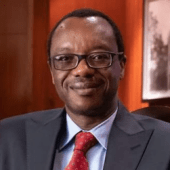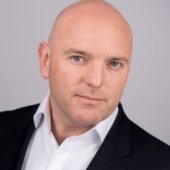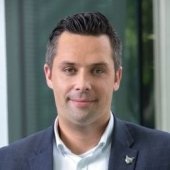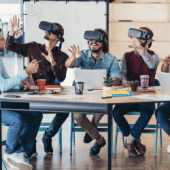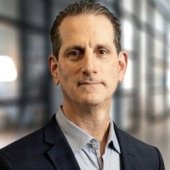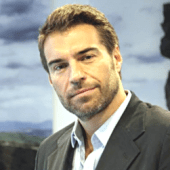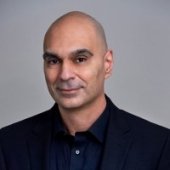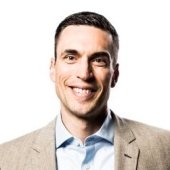From talent to tech with futurist and business strategist, Graeme Codrington, co-founder of TomorrowToday
IN BRIEF
- 7:30 - By 2030 is we’ll have a lot more data, a lot more science that is going to show us that you reach a point, as a knowledge worker, where you’re not adding value anymore because of fatigue… I think in the next 10 years, we’re going to work out what that looks like for your brain.
- 17:45 - I think by 2030, the traditional careers and traditional professions are not going to exist anymore. You’re going to have to have overlapping sets of skills. Some of those are obvious already. Robotics, automation, AI, data analytics, but I think you can look at pretty much any career and profession and realize there’ll be integration.
- 29:12 - I think by 2040, there won’t be any long-haul destinations… I think by 2040 there might be point to point anywhere to anywhere on the planet in less than an hour. That would change everything. I think travel has got to be on our radar as being very, very different by 2040.
Graeme Codrington, an expert on the future of work, bestselling author, award-winning speaker, and board advisor, joins the VISION by Protiviti podcast. He works across multiple industries and sectors and has a particular interest in disruptive forces changing how people live, work, interact, and connect with each other. Speaking internationally to over 100,000 people in more than 20 different countries every year, he lectures at some of the world’s top business schools and has written five books, including Mind the Gap and Futureproof Your Uncertain Future.
FROM TALENT TO TECH WITH FUTURIST AND BUSINESS STRATEGIST, GRAEME CODRINGTON, CO-FOUNDER OF TOMORROWTODAY - Audio transcript
Joe Kornik: Welcome to the VISION by Protiviti podcast. I’m Joe Kornik, director of brand publishing and editor-in-chief of VISION by Protiviti, where we put megatrends under the microscope to examine the big topics that will impact the C-suite and executive boardrooms worldwide.
Today, we’re exploring the future of work. I’m joined by Graeme Codrington, an expert on the future of work, a bestselling author, an award-winning speaker, and a board adviser who works across multiple industries and sectors. Graeme has a particular interest in disruptive forces changing how people live, work, interact and connect with each other. Speaking internationally to over 100,000 people in more than 20 different countries every year, he lectures at some of the world’s top business schools and has written five books, including Mind the Gap and Futureproof Your Uncertain Future. Graeme, I am so looking forward to this discussion today on the future of work with you. Thank you so much for joining the Vision by Protiviti podcast.
Graeme Codrington: This is one of my favorite topics in the world to talk about, and I’m thrilled to have the opportunity. Thanks, Joe.
Kornik: Graeme, I think you may agree with this premise — that the pandemic was not only a disruptor but also an accelerator of change. Changes that may have taken maybe the rest of this decade, even, to impact the world of work are now already evident. As a result, what might have felt like conversations and decisions that we could have put off perhaps for many years are more important than ever today. Does that sound about right?
Codrington: That’s spot on, Joe. You asked me to think about the world of 2030 for this podcast, and I think the world of 2030 has already arrived — at least what we thought 2030 was going to be — COVID-19 is the cause of that. A lot of things that were going to happen over the course of the rest of this decade are now already in play. Quite a lot of that has got to do with the workplace and hybrid and flexible working. Quite a lot of it has got to do with technology. That’s the easiest to point to — that some trends in ecommerce and digital supply chain management and things along those lines have been accelerated. People are being forced to accelerate those, but those are the easy things to think about.
For me, what’s more fascinating is the shift in people’s expectations. This is looking more at the people themselves rather than the physical location of work or the technology that we use. For example, people want more autonomy. They’ve gotten used to working from home. They might tell themselves they don’t really like it or they want to get back to the office, but they’re going to come back to the office with an attitude and an expectation of a lot more freedom and autonomy.
Automation is going to be a big theme over the rest of this decade, as people realize that there are technological tools. It is really as simple as Zoom, for example, and Microsoft Teams. Now people have realized, “We can all do this. We can all have virtual teams. We can all work globally.”
That leads nicely into a third theme of personalization. People are expecting things to be customized even if it’s just your Zoom background, but obviously a lot more, and we can get into some of that in the conversation. That’s leading to an integration, or a blending, across functions and across industries. And then finally, it’s no surprise to me that Facebook has shifted into the metaverse and the meta realm in this COVID-19 world, because extended and virtual realities are going to intersect with the workplace maybe faster than we expected.
That is a mouthful response, but a great question to get us going. A lot of these trends are going to be in play and are going to move faster than we expected, which means that 2030 is tomorrow, and maybe we — you and I, Joe — should be talking about 2040 instead.
Kornik: Feel free to look out as far as we can, Graeme, because that’s what we’re trying to do here with Vision by Protiviti — look far into the future. We have a hard time getting people to look a year or two out, so, typically, 2030 is a big enough challenge for the leadership that I talk to. Let’s start where you did — the idea of autonomy, which is a really interesting one, and how that’s going to be a key component of the employee experience over the next decade and beyond. What do you mean by that, exactly, and how will that manifest itself in the daily working lives of employees?
Codrington: We don’t want everybody to switch the podcast off after just five minutes because they hear the words hybrid and flexible again, but that’s where it starts. We all know that flexibility and hybrid working is now the name of the game, but when your employees ask for flexibility, what they really want is autonomy. They feel that it manifests in “Can I be a little bit more flexible with the hours I work?” “When the working day starts?” “Can I work from home a day or two?” But if we play that out for another eight or nine years, that’s not just going to be a little bit of flexibility that people are asking for. People are going to deeply want more control over their world — not just over their working world, but over all of their lives. That’s going to push us well beyond the old work-life-balance conversation.
This is shifting — and Joe, tell me how much detail you want us to go into in some of these contexts. Some of them are on the edge of familiarity, but they’re going to be important — things like outcomes-based working, where we are no longer measuring people inputs. No more time sheets. No more tracking hours. No more measuring people’s contribution to the business by whether they worked overtime or how many hours they put in, but shifting to being able to measure people by their outputs only.
Realizing that some people might work a four-day week — and we know already, where we are talking here in 2022, Dubai has made that shift to a longer weekend. Iceland has been experimenting. Probably 15 countries around the world are putting real money into experiments with four-day working weeks, which might sound anathema to our American listeners, but it’s got to do the shift toward measuring productivity, effectiveness and output in different ways. I want to get beyond the buzzwords of hybrid and flexibility and realize there’s a deep shift coming in the world of work.
Kornik: To think about a four-day workweek almost seems counterintuitive considering that even the five-day workweek has morphed into this six-day workweek, or 5.5-day workweek. We could say that we want to potentially move back to a four-day workweek. I’m worried that it’ll turn into 15-hour work days. That’s my big fear.
Codrington: Joe, that’s exactly right. What we haven’t done, and what we will do, by 2030 is, we’ll have a lot more data, a lot more science, that is going to show us that you reach a point as a knowledge worker where you’re not adding value anymore. We know this for the physical labor, because your body literally gives up. Your muscles say, “I can’t do any more.” Then, injuries happen, and it’s a health and safety environment, and in the next 10 years, we’re going to work out what that looks like for your brain, which then is linked to your mental health, which then is linked to your physical health and your well-being.
People who have heart attacks and strokes and stress-related illnesses, which include cancers and others, we’re going to track that back and realize that our bodies can’t cope with a 15-hour workday, six-day weeks, and then the conversation will be around peak performance versus recovery. It will be about contribution, not just measuring inputs. That’s the conversation. We can probably spend the whole podcast on this. Let’s not do that — we’ve made the point — but this is huge, and it signals probably the biggest shift in workplace practice in 100 years.
Kornik: That’s fascinating. That whole idea that you brought up around measuring productivity, or what is productivity, or how do we redefine productivity, is really interesting. Clearly, there’s the whole technological revolution that’s happening at the same time, and automation was your second topic that you brought up in the beginning. I don’t think we can possibly talk about the future of work without discussing AI and its impacts. That’s what everyone is focused on.
Codrington: Yes, the question that’s obviously normally asked in this space is, how many jobs will disappear? How many jobs are we going to replace? By 2030 — here’s a bold prediction: none. Now, stick with me. There was a comma at the end of that statement. There are very few jobs that can be 100% replaced by a machine. There are hundreds and thousands of tasks that can be replaced.
That might sound like I’m just playing with words, but I’m not. Too many C-suite leaders are thinking in terms of head count and thinking in terms of function. When you do that, it’s quite difficult to visualize and imagine how artificial intelligence will make its way into your workplace. You tend to then think you have to have a million-dollar supercomputer in your basement, and until you’ve got that, we don’t have AI. I like to think of IA instead of AI — IA being “intelligent assistance.” And then, if you think of your job, it has a hundred tasks associated with the job, and how many of those tasks can you get intelligent assistance for? Once you begin to think in this way, you move a lot faster into much cleverer automation.
Again, an hour’s worth of conversation, but maybe that’s enough for people to realize that a mindset shift is maybe the biggest thing that’s going to happen in the next 10 years into looking at tasks and how those tasks then get assisted in a variety of ways, including very clever algorithms and machine learning and all those things, but not necessarily. Very clever might just be a simple chatbot or a little Excel spreadsheet that helps you. As long as you’re thinking about intelligence assistance, you’re moving yourself nicely into the future.
Kornik: Graeme, I’m going to quote you on that: “We’re not going to lose any jobs to AI.” That could be the headline from the podcast.
Codrington: Let’s put a pin in that for about five minutes, because I think that conversation is going to come back to that. I didn’t say that no one would lose their jobs, but we’ll come back to that.
Kornik: A big part if this is, obviously, data and how we are constantly capturing data in all of this, and throughout all these technologies, we’ve got more data than we know what to do with. That’s one of the challenges that we have going forward. Talk to me about data and how that will drive the future of work, and what it will look like in 2030.
Codrington: For data, we’ve got to take two steps back, and people forget this. The first thing is the Internet of Things. This was all the rage — ten years ago, every conference had an Internet of Things breakaway session, and we’ve forgotten about it. It starts with instrumentation. It starts with gathering data and getting as much data as possible.
I see three I’s: instrumentation, interconnected and then intelligence. Maybe an example is useful here. We know the theory, but let’s give an example: Right now, we don’t have healthcare systems in the world. That’s not me as a South African being rude about America. I know that’s a big political debate. That’s not what I’m talking about. Nobody has a healthcare system, because you don’t get into the system until you are sick. We have sick care systems — you don’t get a message from your doctor saying, “Graeme, you are going to be sick by next Tuesday unless you do the following things.” We only get a message from our doctors saying, “That test you did yesterday, I have the results, and I’d like to see you.”
So what we can do — we’ve all got these fitness trackers that we wear, these smart watches. They’re measuring our steps, but over the next few years, they’re going to be measuring heart rate, blood pressure, body temperature. We could obviously measure what we eat and what we drink. We can measure our sleep. Three or four years ago, nobody would have believed the next thing: We can measure who you’re meeting, who you plan to meet, who you did meet, where you went and what the implications are of that.
Before COVID-19, everybody would have thought I was crazy and said, “Nobody’s going to give you that data.” Now during COVID-19, we realize the value of getting a message saying, “Graeme, you met somebody earlier today who exposed you to an infectious disease.” Wouldn’t it be better if they said, “Graeme, you’re planning to meet somebody tomorrow and, data privacy, we can’t really tell you why not, but we highly recommend you go virtual with that meeting rather than face to face”? People understand that now.
Again, this is the point we’re making in the podcast, that there’s a shift in understanding that’s going to bring the future closer. Now, you can imagine a system where we’re gathering a lot of health and well-being and medical data about you and me, Joe, and now a supercomputer somewhere can analyze that data — can, using big data pools and predictive data analytics, then see that, “Graeme, you’re heading down the road: You’re not sleeping well. You haven’t drunk enough. You are meeting people who are exposing you to things. Graeme, unless you change the following three things, you might be sick by next Tuesday.”
That’d be remarkable. Everybody would sign up for that system. There’s an example of what a data-driven analytics system might do. And now, pull that into the world of work, where you’re trying to predict and understand how to get the most out of your employees. You’re trying to work out who to hire and what you should be offering them, and peak performance, and who should get promotions, and which groups of people would work best in teams, and who should work from home and who should not. You can just see what data is going to do to that and to the future of work, and there’s going to be a lot of data science coming into our HR functions, into our finance functions, into our strategy functions. I’m excited about it.
Kornik: You mentioned hiring, and I’m interested in skills and capabilities of the future — what will be required. You talked about the integration of skills and jobs and industries and how they all interact, and how that evolution will accelerate in the future.
Codrington: There’s two things to say here, and the one is, I neatly sidestepped to your earlier question about no jobs disappearing. We come back to that now. This is where I wanted to talk about it. Some people will lose their jobs, but what I meant by saying that no jobs will disappear entirely — that was the word that I left hanging in the air — is because jobs will begin to fuse with each other. Right now, we very much break the world down into fairly neat siloes.
Let’s go back to the medical environment: There’s a surgeon. There’s a nurse. There’s a doctor. By 2030, those doctors are going to be integrated with robotic operating theaters where they’re going to have to be working alongside robots to do surgery. They’re going to be using big-data analytics to try and predict the diseases and the diagnoses of their clients. So, is there any pure doctor in the future, or is it a doctor/data specialist? Is it a doctor/robotic specialist?
If we bring it into other places of work, are there going to be pure accountants in the future, pure HR specialists, pure engineers, or are we going to see — well, let me not frame it as a question, because by 2030, the traditional careers, especially the traditional professions, are not going to exist anymore. You’re going to have to have overlapping sets of skills. Some of those are obvious already — robotics, automation, AI, data analytics — but you can look at pretty much any career and profession and realize there’ll be integration. Maybe if we think about it at industry level, it’s a little bit easier to conceptualize.
Think about it now: Even in 2022, as we recall this, what industry is Apple in? You say technology, but technology is too big a word. Are they in computers? Are they in telecommunications? Mobile devices? You haven’t forgotten, of course, that they are the biggest music company in the word. They’re in entertainment. Of course, then you’ve got Apple TV, so they’re in different types of entertainment as well. I’m sure you’ve all worked out what an Apple Watch is: It’s a fashion item, so they’re also in fashion.
Of course, they’re in retail, because their stores are magnificent, if you like that kind of thing, but their watches are actually their health play. Apple has employed more doctors in their Apple Watch team than engineers in the last few years. They’ve seen that coming. There are rumors — and by the time you listen to this podcast, the rumors might be reality — of an Apple car. Nobody’s going to be surprised if they come out with EVs — electric vehicles — and the list goes on.
Can I go back to my question? What is Apple? You could pretty much pick an industry — pick a company. Banks are becoming lifestyle companies. Insurance companies are becoming banks. They all tack on mobile devices. What is Amazon? It’s not a shop. It’s a computer warehouse. In every industry, in every business, you’ve got these overlapping or integrated systems, and that makes it fascinating, Joe, for us.
I realize I haven’t answered the question you asked me, because you’ve asked what skills are required. Again, we spend three hours giving you the list. All I would say is, you need different and more integrated skills than you ever needed before. That’s going influence between now and 2030. It has to influence who you hire — must influence who you promote. It certainly should be influencing what chairs — not as in chairpersons, but, literally, what are the seats at the table at your C-suite? Head of data, or chief data or chief officer of the future, head of the future or something: There are going to be titles that emerge because the skill sets that will take us to 2030 are not just better skills of the skill sets we’ve got today. They’re different, and I think integrated is the right word there.
Kornik: One thing I’m interested in — and you mentioned, in your introductory comments, the metaverse, which we’ve heard a lot about, and these alternate-reality spaces — I’m curious about where we’ll work. Not so much like hybrid and remote, but the future of the office is a big topic when we’re dissecting the future of work and where we’re going. I’m curious as to how you view the future of the traditional corporate office and how much we’ll actually be doing in that space and if we are in that space, how it will be used, and how it will be most effectively used in the future.
Codrington: The four words we’ve used so far help us here. We want flexibility/autonomy, which means that your buildings have to be built in a way that says, “This week, the office can look like this, but next week it needs to look in a different way.” That’s not just open plan and hot seating. It’s a lot more complex than that. Then you want to incorporate artificial intelligence — that instrumentation, interconnectedness, intelligence — into the system. We’re going to have to have smart buildings, smart offices, smart desks and so on.
Then, we want the integration. You don’t want finance sitting on the second floor and HR sitting on the third floor and IT in the basement. You got to have to have the integration for the buildings to physically allow for the future of work to manifest itself. Then you can take it a step further, of course, and say, “What if the future of the office is no office?” Not that we’re all working from home. That doesn’t work for many people. You’ve got to have a nice, big home and a setup for home working to really work for you. It’s possible for some, but for most people, we want the connectedness, the engagement with people.
Not just virtual reality, but all forms of extended reality, won’t be part of the workplace by 2030. I don’t think it’s the metaverse. I think that’s a bit of a gimmick to get us going, but you’ve got to start somewhere, and by 2030, we’re going to be engaging with a — hybrid is the word — massive set of tools available to us. The question is not going to be “Should I work from home, or should I come to the office?” The question is going to be “Given the work that we have to do as a team, given the work we have to do, under what conditions will we do our best work?” Then, the flexible spaces and tools to help us maximize the effectiveness of our answer to that, that’s the future of work.
Kornik: Interesting. You’ve given us a lot to think about so far today, and I’m curious about what we can act on — or, more specifically, what business leaders and corporate executives and CEOs can act on. What’s the call to action for them to be prepared for this?
Codrington: There are probably three things that jump to mind immediately. The first is, you have to switch a radar on. If that image is useful, the radar is the machine that helps you look beyond the horizon through the clouds. Too many companies are too short-term-focused at the moment. We understand this coming out of COVID-19 — everybody’s working. They’re not thinking that we can plan six months in advance or a year in advance. But that’s going to hurt you. You’ve got to at least give yourself some time each week and each month to lift the horizon a little — look a little bit further out than you are now.
The second thing that you need to do is, you need to unlearn. If I can make a specific recommendation, Adam Grant’s book called Think Again is probably the best book written in the last five years. It honestly is a masterpiece of capturing the moment where we are now. It’s all about this unlearning. This ability to say, “The way we used to do it was fantastic. We’re not looking back on ourselves and saying, ‘We were wrong,’ but we are looking ahead and saying, ‘It’s not going to work.’” You’ve got to teach yourself, and you’ve to develop the skill set and the attitudes that allow you to be confident to say, “Let’s unlearn. Let’s do something different.”
That leads to the third thing. A lot of C-suite people, they’re all clever. You don’t get promoted — especially in larger businesses, you don’t get promoted — without being smart, without being clever, but the problems is that a lot of those C-suite people get in their heads. They think that we can spend just a little bit more time thinking about this — we can have another meeting. We can talk this through, and then we’ll find the answer, and then we can do a budget and we can do return-on-investment analysis, and we can build a project plan, and we can get the project management guys in place, and we can hit the green button, and we can minimize the risk and it will all be great.
It won’t be. Not in the world that we’re living in now. Too many disruptions, too many variables, too much uncertainty, too much volatility. These things make it impossible for you to think yourself into a safe and certain future. So, what do you do? You experiment. In a word. Single word. There’s a lot behind experimentation — the ability to innovate, to capture ideas, to filter what’s right and wrong, to risk-mitigate so that you don’t do experiments that will blow the place up. This culture of accepting failure. It’s not failure — it’s learning.
There’s a lot, but if it’s one word, if you can build, as a senior leader in a business today, if you can honestly build a genuine culture of experimentation where every single person in your business is confident and competent to say, “I’m trying something right now” — every day, every week, every month, everybody’s trying something. They’re learning from it. They’re sharing their learnings. If you can honestly say you’re building that system and it builds, you will have done the best thing you could do, and you’ll make it through to 2030 — and when you get there, you’ll discover you’re ready for it.
Kornik: Fantastic. Now that we’re 2030, maybe go to 2040. We’ve hinted about it a little bit on this podcast. Any bold predictions about 2040, or what haven’t we thought of? What’s going to surprise us? Anything outside the box that you want to leave us with around 2040?
Codrington: This is a fun way to end this. Yes, we’re looking at the future. Let’s push ourselves. World of work 2040. How about this one? It has to do with travel. One of the dumbest things human beings have ever done is invented rush hour traffic. It is a great example of everything we’ve been talking about: Everybody trying to get to the office at exactly the same time. Repeat at the end of the day, to all go home at exactly the same time. Solving traffic and commuting must be something that we can do and should be cleverly done.
By 2040, not only will we have driverless cars, they also won’t just be legal, they’ll also be compulsory. Traffic systems work better when every vehicle is driverless. We’ll have flying cars, definitely. It’s already there. The traffic police in Dubai already use drones to fly above the traffic, so that will have happened by 2040, but then it gets bigger and bolder, as you asked. By 2040, there won’t be any long-haul destinations. I know what the billionaire space cowboys are doing at the moment.
They’re trying to get into space and play astronaut and all the rest, and Jeff Bezos is genuinely wanting to build a hotel in space, etc. But the financial model is about putting normal human beings into a space shuttle and throwing them across the planet in half an hour: New York to London is 20 minutes in a spaceship. San Francisco to New York is 22 minutes in a space shuttle. It’ll happen by 2040.
It won’t be for everybody. You won’t be able to go coach yet, but if you can afford a first-class ticket, there might be point-to-point anywhere to anywhere in less than an hour on the planet, and that might change everything about who we collaborate with, how we work together, what a multinational organization looks and feels like, logistics, supply chain. Travel has got to be on our radar as being very, very different by 2040.
Kornik: That’s interesting. I can’t get to my office in midtown Manhattan from northern New Jersey in an hour — not even close — so what a welcome change that would be. Graeme, thank you so much for your time today and for joining us on the podcast. We really appreciate it.
Codrington: It’s my pleasure. I love taking people to the future, and I hope that this vision of what might be has inspired a few people to build it.
Kornik: I hope so as well.
Thank you for listening to our VISION by Protiviti podcast. Please rate and subscribe wherever you listen to podcasts, and be sure to visit us at vision.protiviti.com. Thanks, everyone, for listening to the podcast. We’ll see you next time.
Graeme Codrington is a futurist and an expert on the future of work. He is a bestselling author, award-winning speaker and board advisor who works across multiple industries and sectors. He has a particular interest in disruptive forces changing how people live, work, interact and connect with each other. Speaking internationally to over 100,000 people in more than 20 different countries every year, he’s in two speakers’ halls of fame (South Africa and the UK). He is also the co-founder and international director of TomorrowToday, a global firm of futurists and business strategists.
Did you enjoy this content? For more like this, subscribe to the VISION by Protiviti newsletter.




